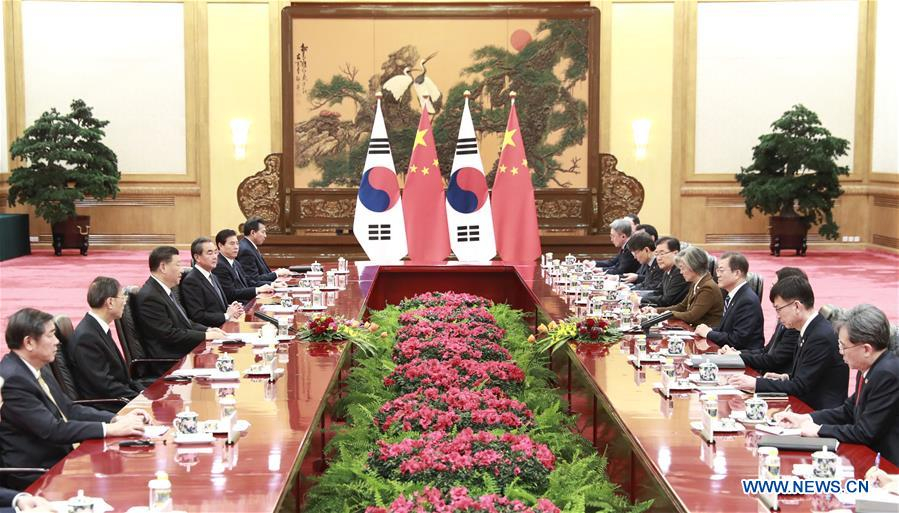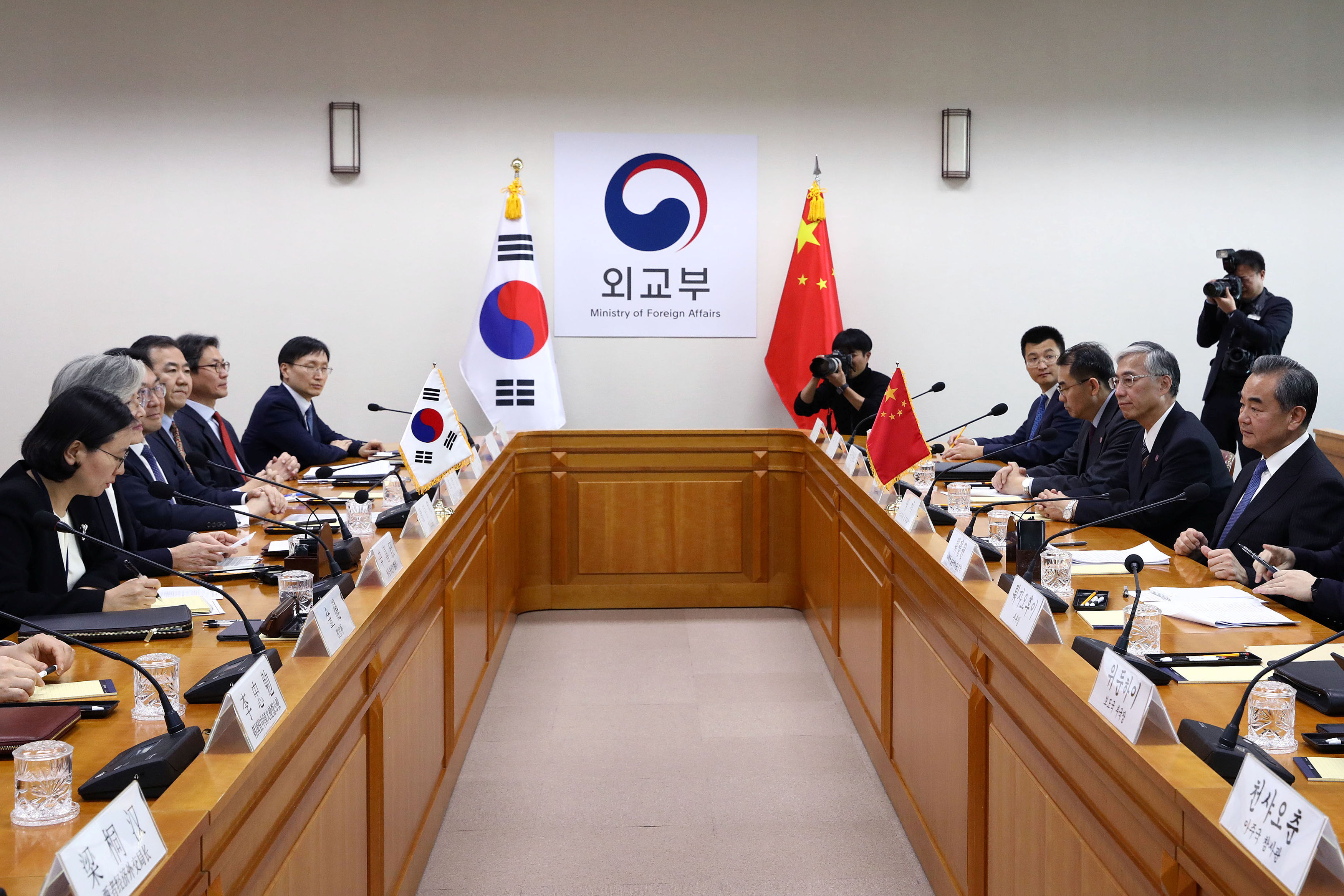
Chinese President Xi Jinping meets with President of the Republic of Korea (ROK) Moon Jae-in at the Great Hall of the People in Beijing, China, December 23, 2019. /Xinhua Photo
Chinese President Xi Jinping meets with President of the Republic of Korea (ROK) Moon Jae-in at the Great Hall of the People in Beijing, China, December 23, 2019. /Xinhua Photo
Editor's note: Tom Fowdy graduated from Oxford University's China Studies Program and majored in politics at Durham University. He writes about international relations focusing on China and the Democratic People's Republic of Korea. The article reflects the author's opinions and not necessarily the views of CGTN.
As part of a three-day trilateral summit with the leaders of China, Japan and the Republic of Korea (ROK), Chinese President Xi Jinping met with Seoul's Moon Jae-in at the Great Hall of the People in Beijing to reaffirm the "new era" of their relations on December 23.
Both Xi and Moon emphasized that both nations share "a time-honored history and culture" and that with such the "two countries can never become estranged". The ROK president detailed that "China's dream becomes an opportunity for ROK". The two leaders also agreed to make progress on enhancing free and open trade, advancing peace on the Korean peninsula and respecting each other's mutual sovereignty.
Undoubtedly, strong China-ROK relations are here to stay. Although there have been differences in the relationship in recent years, policymakers in Seoul are continuing to place importance on a strong and robust bilateral relationship with Beijing, which remains firmly in the country's national interests.
Some appear to resent this, but ultimately the two countries are brought together by more than what sets them apart. In turn, it is absolutely important that as specified, the common historical, cultural and social ties that have linked the two nations for millennia are given continuing emphasis, especially as Washington attempts to coerce Seoul into taking a harder line.
What is referred to by a common history and culture? Ultimately we begin with the very aspect which will be used to elaborate further points: geography. The ROK and China are neighbors and have been for thousands of years, separated only by the Yellow Sea.
A great deal of what would create the foundations of Korean identity was derived from China accordingly: This includes their original writing system of Chinese Characters, known as "Hanja" which would be later simplified into Hangeul, the philosophy of Confucianism which has influenced Korean society and politics and many more things. While it is fair to say that the ROK has created much of its own culture, the influence of geography is nevertheless undeniable.

Chinese State Councilor and Foreign Minister Wang Yi talks with the ROK's Foreign Minister Kang Kyung-wha during their meeting in Seoul, ROK, December 4, 2019. /Reuters Photo
Chinese State Councilor and Foreign Minister Wang Yi talks with the ROK's Foreign Minister Kang Kyung-wha during their meeting in Seoul, ROK, December 4, 2019. /Reuters Photo
Beyond cultural aspects, it is nevertheless still the same geographic context which underpins the foundation for the present day relationship between the two countries. Although the legacy of Japanese Imperialism and the Cold War has set China and the ROK apart on very different paths and circumstances, nevertheless in today's modern and globalized world the two countries' paths have once again became increasingly intertwined.
China constitutes both the largest import and export market for the ROK. Korean produced automobiles, ships and other engineering products are in huge demand in China. At the same time, locals place great enthusiasm on the quality of Korean brand consumer products, from clothing to cosmetics, home appliances and more. Korean music and television shows are also popular.
These circumstances have subsequently made Korean presidents friendly and amicable towards China; even if there have been small differences. Park Geun-hye made a point of attending the 2015 Tiananmen Parade despite Washington telling her not to, Moon remains weary of participating in the U.S. "Indo-Pacific" initiative and Seoul also rebuffed U.S. demands they ban Huawei from their 5G networks, with the company now operating over 18,000 5G stands in the country. Washington hawks bemoan the fact that the country continues to perceive Japan as the long-term, historical antagonist, and not Beijing.
Thus, it is likely that despite the U.S.' bid to try and force Seoul onto an anti-Beijing course, strong China-ROK relations are here to stay. As neighbors with so much to gain from each other, it is ludicrous to expect the Blue House to derail this relationship solely on behalf of American self-interest.
Nevertheless, as such pressures grow it is absolutely essential that these cultural and historical affinities are given increasing emphasis. Differing ideological pathways and histories should not be allowed to impede the common heritage that the two countries boast. Greater emphasis must be placed on mutual understanding beyond suspicion, stereotype and prejudice. The Cold War is but an article of history and attempts by the U.S. to revive it must be firmly rejected; never can the progress made in China-ROK bilateral relations be reversed on the whim of such nostalgia.
Thus as Moon quoted yesterday: "The ROK and China possess a heaven-sent opportunity and advantageous situation on earth that can bring about mutual prosperity. If harmonious human relationships are added, we can usher in a new era together."
(If you want to contribute and have specific expertise, please contact us at opinions@cgtn.com.)